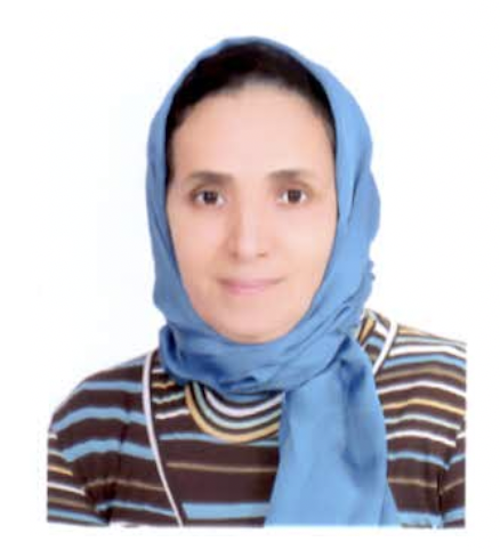
Nadia Touil
Country (Nationality)
Morocco
Grantee Title
Project: Recombinant group A Rotavirus VP6 (rVP6) as an attractive protein subunit vaccine against RVA disease for young children and ruminants in Morocco
Grantee Description
Home Institution: Royal School of Military Health Service, Rabat, Morocco
Host institution in India: Indian Veterinary Research Institute, Bareilly, Uttar Pradesh
Nadia Touil is a full Professor at Royal School of Military Health Service, Rabat, Morocco and working in the Laboratorie de Recherche & Biosécurité at the Teaching Military Hospital of Rabat (HMIMedV, Rabat). She graduated from the College of Science (Animal Biology) from Mohammed I, University in Oujda in 1994. She completed her PhD in Sciences (Cell Genetics) from the Vrije Universiteit of Brussels, Brussels (Belgium) in 2002. She worked as a researcher at the Department of Immunology at the HMIMedV (Hôpital Militaire d'Instruction Med V de Rabat) from 2003-2008. From 2009-2014, she worked at the Biopharma company for Biological and Veterinary pharmaceuticals production. Her main task was to develop Group A Rotavirus vaccine. In 2014, she specialized for the diagnosis and interspecies transmission of Enteric Viruses. In 2017, she started working on the development of a recombinant RVA protein and works with the team of Dr YS Malik from the Indian Veterinary Research Institute, India.
Project: Recombinant group A Rotavirus VP6 (rVP6) as an attractive protein subunit vaccine against RVA disease for young children and ruminants in Morocco: To improve the control of group A rotavirus (RVA) infection and disease in children in Morocco, Rotarix and Rotateq live attenuated vaccines were introduced into the National Immunization Programme (NIP) in 2010 and 2014 respectively. The former vaccine has been associated with reduction of almost 50% of RVA hospitalization while, four years after its introduction, some vaccinated children were found to be severely affected with acute gastroenteritis (AGE). Unusual P [14] serotypes in their feces were detected and showed similarities to RVA excreted from bovine and small ruminants with AGE. In our context where many children and adults are living in close relationship with ruminants, P [14] RVA should be common. We are currently working on the development of an attractive recombinant protein targeting all RVA (from human and ruminants) using the BacMam viruses. Our partnership with the Indian Veterinary Research Institute at Uttar Pradesh lead us to advance the production of the rVP6 protein.
